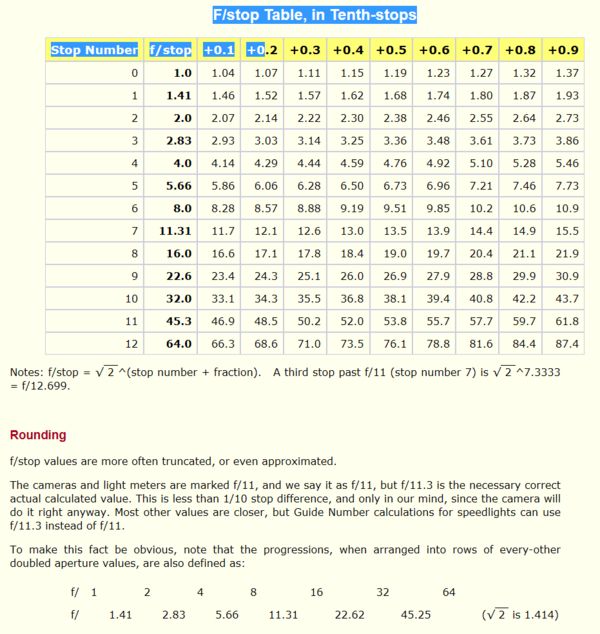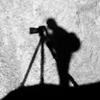Check out Traditional Street and Architectural Photography section of our forum.
High ISO? Why?
Mar 26, 2015 16:12:24 #
A favorite selling point on new cameras is how high the ISO number will go. A higher ISO number makes the camera more sensitive to light, which means higher shutter speeds and smaller apertures, right? In the the next breath the "experts" are telling us to use the lowest ISO possible, to reduce "noise". I understand that, ideally, a fine camera should have high ISO settings with a minimum of noise. But why an ISO number in the tens of thousands when most photographs are taken in the hundreds?
Mar 26, 2015 16:18:17 #
Photomacdog wrote:
A favorite selling point on new cameras is how hig... (show quote)
Dog, yes, lower ISO produces less noise.
I guess its better to have high ISO on your camera and not need it, than to need a high ISO and not have it.
You need what you need.
Get faster GLASS, it's a win-win!! :lol:
SS
Mar 26, 2015 16:23:51 #
buenaventura43
Loc: Rockland Co. NY
Photomacdog wrote:
A favorite selling point on new cameras is how hig... (show quote)
When I took pictures of my granddaughter playing volleyball game with 70-200 f/2.8 in school gym , I used high ISO to have a shutter speed of 1/250. Flash is not allowed .ISO is in the thousands.
Check out Black and White Photography section of our forum.
Mar 26, 2015 16:31:36 #
Mar 26, 2015 16:33:47 #
While my camera can shoot 256000 ISO, I won't go anywhere near it. For me, my upper limit is somewhere around 3200 to 6400. I have the ability to shoot in auto iso (if I so desire) where the ISO has a user defined max setting. For me it is 3200. if that doesn't work, then I manually increase it to 6400 or put on faster glass, or grab a flash (if possible).
That said, I like to shoot the night sky, and noise on my little m4/3 cab become an issue really fast, so I pay close attention to it.
That said, I like to shoot the night sky, and noise on my little m4/3 cab become an issue really fast, so I pay close attention to it.
Mar 26, 2015 16:43:45 #
Because sometimes, there is absolutely no other way to get that once in a lifetime shot.
Mar 26, 2015 16:45:06 #
Photomacdog wrote:
A favorite selling point on new cameras is how hig... (show quote)
The answer is pretty simple: low light, especially when you need to stop action or get lots of depth of field. It can enable you to get usable shots you couldn't get any other way.
Check out Sports Photography section of our forum.
Mar 26, 2015 17:02:31 #
Photomacdog wrote:
A favorite selling point on new cameras is how hig... (show quote)
It's the difference between taking no picture at all and one that might have some noise. It's not too difficult to remove lots of noise in an image with programs like DeNois, PS, and LR.
http://designtaxi.com/interstitial.html?v=1&advertiser=External&return_url=http%3A%2F%2Fdesigntaxi.com%2Fnews%2F373771%2FPhotoshop-Tips-How-To-Sharpen-Images-Without-Adding-Noise-To-Them%2F
Mar 26, 2015 17:34:47 #
Being able to use a higher ISO when needed is great, if you can get a correct exposure then the noise is not that noticeable. Even cameras with good ISO ratings can still show lots of noise at low settings if the exposure is under what it should be. I bought a 7D Mk II for the higher ISO needed for BIF's on cloudy days and it was a big improvement over my older T3i's. I had just gotten the Mk II right before Christmas and was using it at our family Christmas gathering without a flash. Everyone else was popping flashes and getting washed out images of the people in front and dark faces on the people in the back and they all were curious as to why I wasn't using a flash and was getting proper exposed images. I explained that with the higher ISO and shooting all manual I could set the camera to get the shots. A little trip through Lightroom and they came out better than I had expected, the noise was minimal and easily removed even with the ISO set at 3200. And people not getting their eyeballs toasted by a flash was good, they didn't mind getting their picture taken.
Photomacdog wrote:
A favorite selling point on new cameras is how hig... (show quote)
Mar 26, 2015 17:37:59 #
Photomacdog wrote:
A favorite selling point on new cameras is how hig... (show quote)
Indoort sports. Not my ball of wax though.
:lol: :lol:
Mar 26, 2015 17:43:54 #
tsilva wrote:
Because sometimes, there is absolutely no other way to get that once in a lifetime shot.
Totally agree.
Check out Advice from the Pros section of our forum.
Mar 26, 2015 18:15:58 #
mwsilvers
Loc: Central New Jersey
Photomacdog wrote:
A favorite selling point on new cameras is how hig... (show quote)
If you want to capture a moving subject without blurring, in low light and are already using the maximum aperture, raising the iso to a high level may be the only way to get the shot. With more and more people capturing images without flash and in low light, high low-noise ISO is quite desirable
Mar 26, 2015 18:24:06 #
Cdouthitt wrote:
While my camera can shoot 256,000 ISO,
While my camera can shoot 256,000 ISO,
My camera has a Sasquatch/Nessie setting. I think it's about ISO 750,000.
Even in good light, those are supposed to come out really BAD!!! :lol: :lol: :lol:
SS
Mar 26, 2015 18:33:20 #
Photomacdog wrote:
A favorite selling point on new cameras is how hig... (show quote)
Photomacdog,
"STOP" is "standard way" of comparing lens characteristics (f/stop number = focal length / aperture diameter). Also is used to express the logarithmic increments of light levels. For every fSTOP, light getting to sensor is halved or doubled, so based on starting at "1" and "1.4", you simply start doubling. So once you get above say, 3200, then 6400, 12,800, you are simply defining the next doubling of light or doubling of sensor sensitivity. As sensor development keeps getting better, those "HI" numbers might become more common.
http://www.scantips.com/lights/fstop.html

Mar 26, 2015 18:49:04 #
It's fun to shoot in the dark. Do it all the time to show off. - Dave
If you want to reply, then register here. Registration is free and your account is created instantly, so you can post right away.










